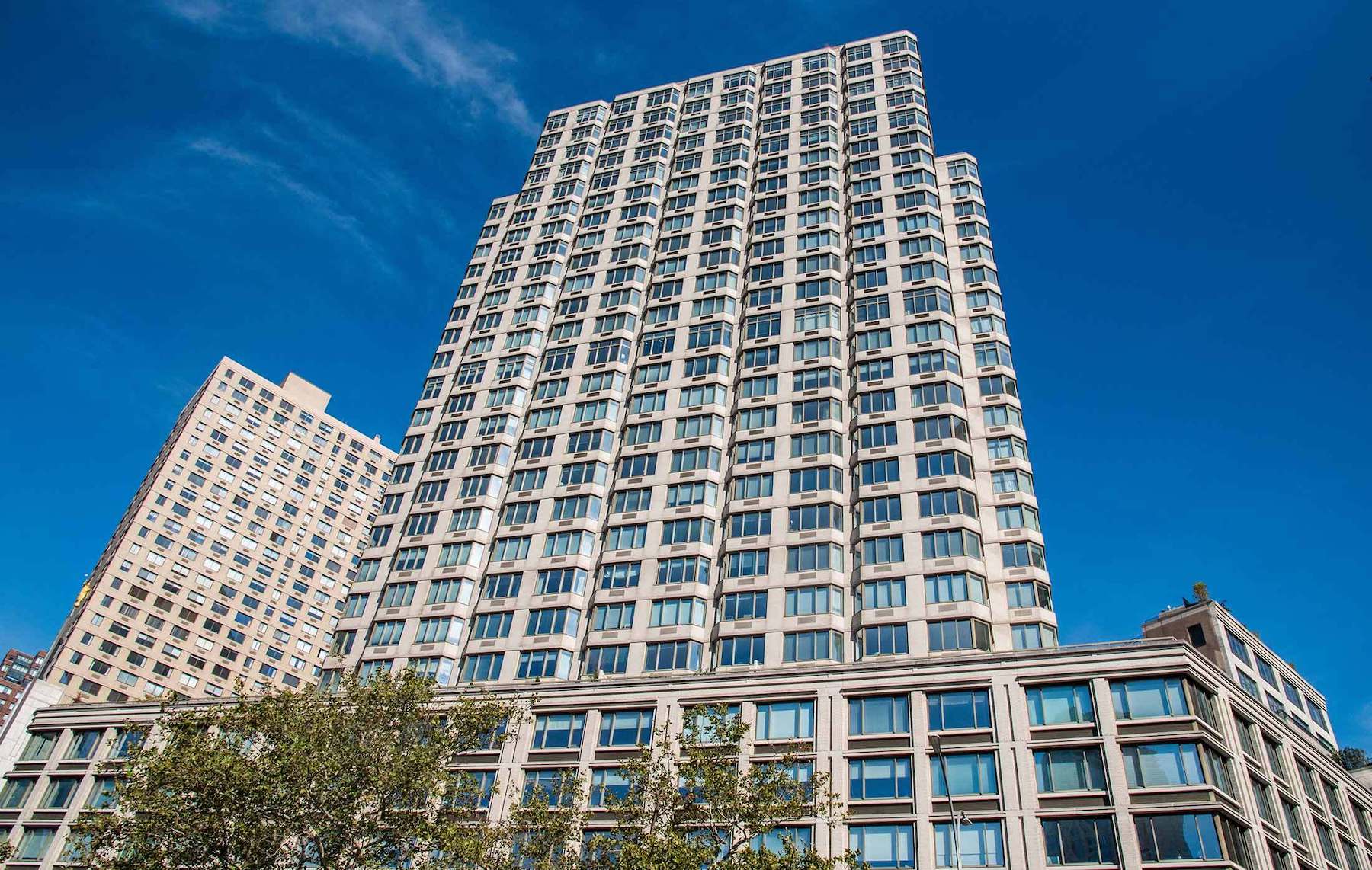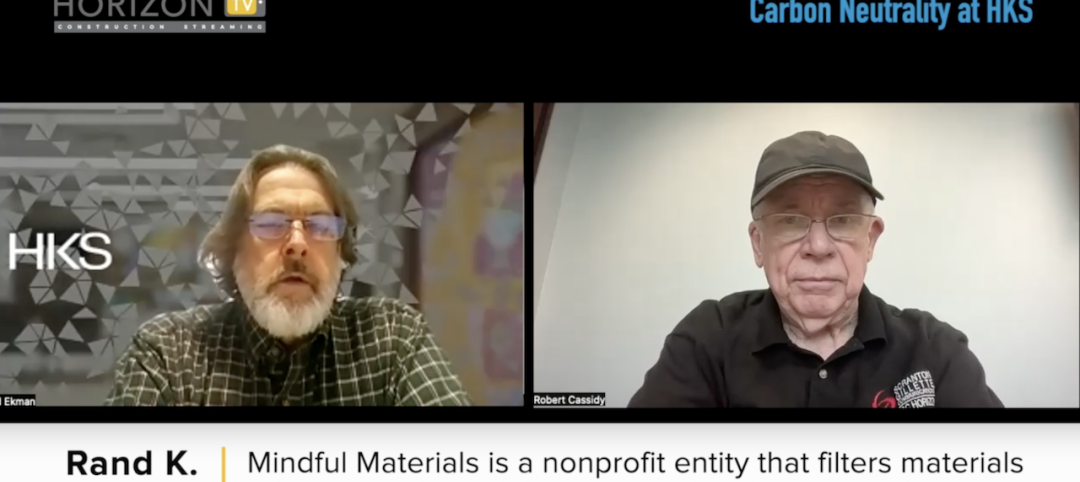In early 2022, the developer and property manager Glenwood Management, working with CarbonQuest, which specializes in turnkey solutions to reduce CO2 emissions from buildings, initiated what was touted as the first commercially operational building carbon capture on the market, at Glenwood’s 30-story 377,564-sf 232-apartment Grand Tier building at 1930 Broadway in New York City, which opened in 2005. This modular system, installed in the building’s parking garage, took up the equivalent of just three parking spaces.
At the time of that installation, CarbonQuest’s CEO Shane Johnson said the system was expected to eliminate about 25 percent of the building’s annual carbon dioxide emissions with zero interruption to tenants, with the longer-range goal of cutting between 60-70 percent of the building’s emissions.
Having deemed the pilot a success, CarbonQuest is now installing its decarbonization technology into another five of Glenwood’s multifamily New York properties: The Fairmont at 300 East 75th Street, The Paramount Tower at 240 East 39th Street, The Bristol at 300 East 56th Street, The Barclay at 1755 York Avenue, and The Somerset at 1365 York Avenue.
This rollout is occurring in anticipation of New York City’s Local Law 97, which in 2024 will start penalizing buildings over 25,000 sf that don’t meet new energy efficiency and greenhouse gas emission limits that will get even stricter in 2030 and 2035. Based on their current carbon use, Glenwood’s properties would incur penalties of about $7 million between 2024 and 2029 without CarbonQuest’s technology, and another $15 million in penalties from 2030 through 2034.
Other cities, such as Boston, Philadelphia and Chicago, are traveling on the same regulatory path.
“A growing number of property owners are evaluating our carbon capture technology, and we are excited to continue partnering with forward-thinking real estate operators to reduce carbon emissions in the built environment,” says Brain Asparro, COO of CarbonQuest, which was founded in 2019 in Seattle.
From gas to liquid

Onsite natural gas combustion generates more than half of total building CO2 that represent between 60 and 90 percent of total emissions in cities globally, states CarbonQuest. The company estimates that its system can eliminate more than 1,000 tons of CO2 emissions per building per year.
It works this way: CarbonQuest’s proprietary technology captures CO2 from a building’s flue exhaust before it escapes as a greenhouse gas. Subsequent to this capture, the CO2 undergoes a multistage process that isolates carbon dioxide from nitrogen and oxygen, and cools the CO2 to a liquid state that gets stored in a bulk tank. CarbonQuest sells this trademarked Sustainable CO2 to companies that are focused on carbon utilization and sequestration.
For example, the Sustainable CO2 from Glenwood’s properties is earmarked to be sold to Glenwood Mason Supply (unaffiliated with the developer), a New York-based masonry firm, which will sequester the CO2 permanently in concrete blocks.
CarbonQuest’s modular systems comes in several sizes to support different building types and applications. Its carbon capture process at each property it’s installed in is coupled with carbon management software that provides real-time data and analytics to verify, measure, and report CO2 emissions to third-party verifiers, auditors, and regulators.
Related Stories
Sustainability | Aug 15, 2023
Carbon management platform offers free carbon emissions assessment for NYC buildings
nZero, developer of a real-time carbon accounting and management platform, is offering free carbon emissions assessments for buildings in New York City. The offer is intended to help building owners prepare for the city’s upcoming Local Law 97 reporting requirements and compliance. This law will soon assess monetary fines for buildings with emissions that are in non-compliance.
Resiliency | Aug 7, 2023
Creative ways cities are seeking to beat urban heat gain
As temperatures in many areas hit record highs this summer, cities around the world are turning to creative solutions to cope with the heat. Here are several creative ways cities are seeking to beat urban heat gain.
Government Buildings | Aug 7, 2023
Nearly $1 billion earmarked for energy efficiency upgrades to federal buildings
The U.S. General Services Administration (GSA) recently announced plans to use $975 million in Inflation Reduction Act funding for energy efficiency and clean energy upgrades to federal buildings across the country. The investment will impact about 40 million sf, or about 20% of GSA’s federal buildings portfolio.
Codes and Standards | Aug 7, 2023
Cambridge, Mass., requires net-zero emissions for some large buildings by 2035
The City of Cambridge, Mass., recently mandated that all non-residential buildings—including existing structures—larger than 100,000 sf meet a net-zero emissions requirement by 2035.
Sustainability | Jul 27, 2023
USGBC warns against building energy code preemptions, rollbacks
In a recent editorial, the USGBC cited a growing number of U.S. state legislators who are “aiming to roll back building energy code standards and/or preempt local governments from advancing energy-efficient building codes.”
Resiliency | Jul 27, 2023
'Underground climate change' can damage building foundations, civil infrastructure
A phenomenon known as “underground climate change” can lead to damage of building foundations and civil infrastructure, according to a researcher at Northwestern University. When the ground gets hotter, it can expand and contract, causing foundations to move and sometimes crack.
Sustainability | Jul 26, 2023
Carbon Neutrality at HKS, with Rand Ekman, Chief Sustainability Officer
Rand Ekman, Chief Sustainability Officer at HKS Inc., discusses the firm's decarbonization strategy and carbon footprint assessment.
High-rise Construction | Jul 25, 2023
World's largest market-rate, Phius Design-certified multifamily high-rise begins leasing
The Phius standard represents a "sweet spot" for aggressive decarbonization and energy reduction, while remaining cost-effective.
Mass Timber | Jul 11, 2023
5 solutions to acoustic issues in mass timber buildings
For all its advantages, mass timber also has a less-heralded quality: its acoustic challenges. Exposed wood ceilings and floors have led to issues with excessive noise. Mass timber experts offer practical solutions to the top five acoustic issues in mass timber buildings.
Apartments | Jun 27, 2023
Dallas high-rise multifamily tower is first in state to receive WELL Gold certification
HALL Arts Residences, 28-story luxury residential high-rise in the Dallas Arts District, recently became the first high-rise multifamily tower in Texas to receive WELL Gold Certification, a designation issued by the International WELL Building Institute. The HKS-designed condominium tower was designed with numerous wellness details.
















